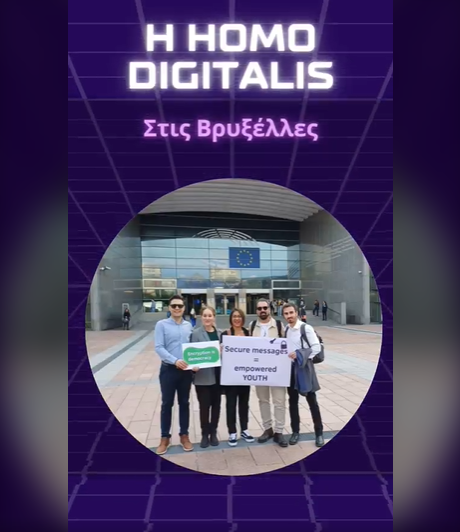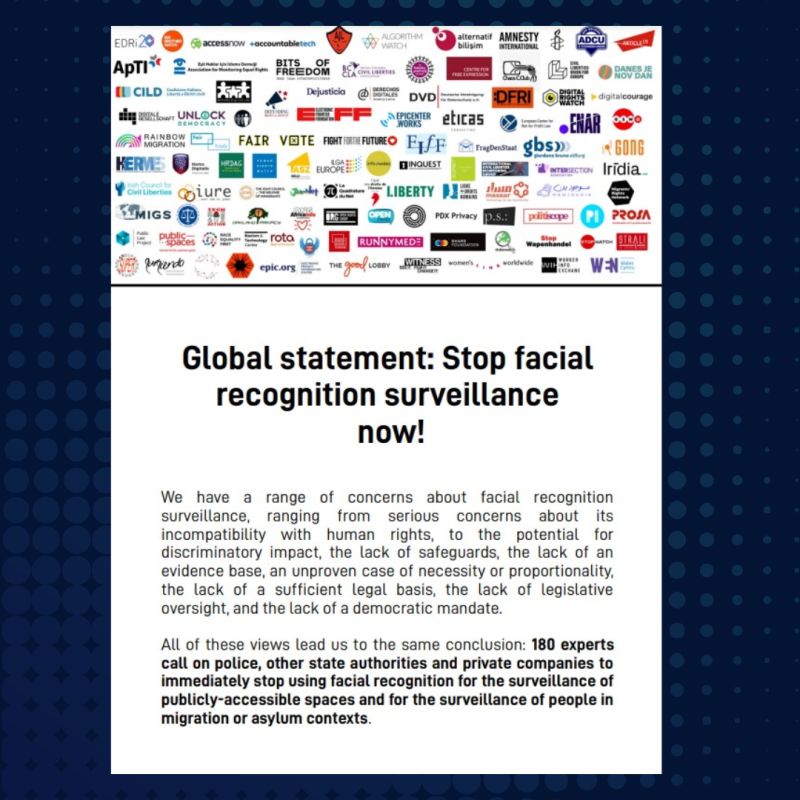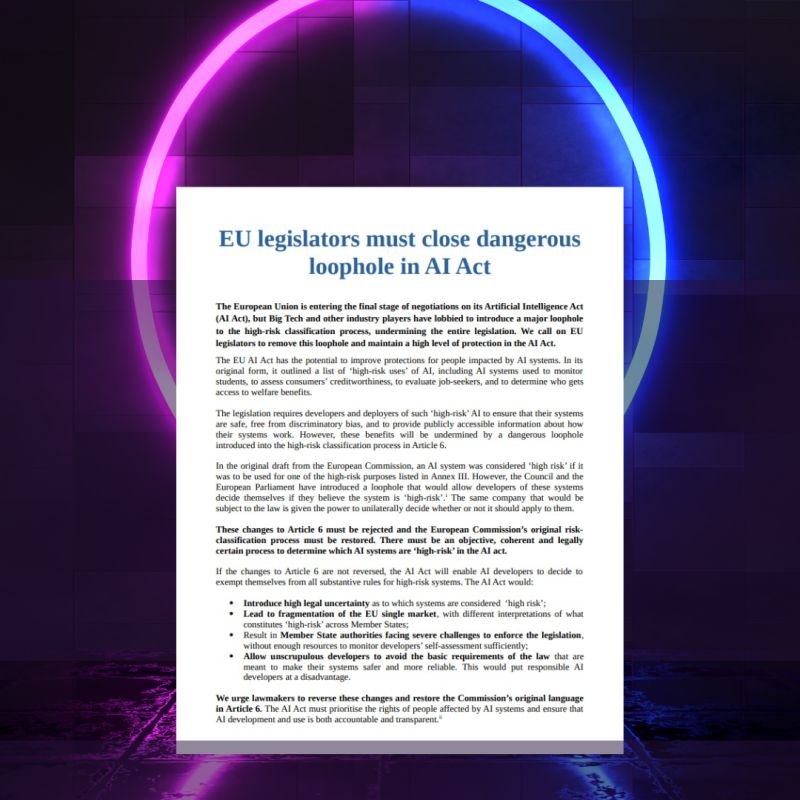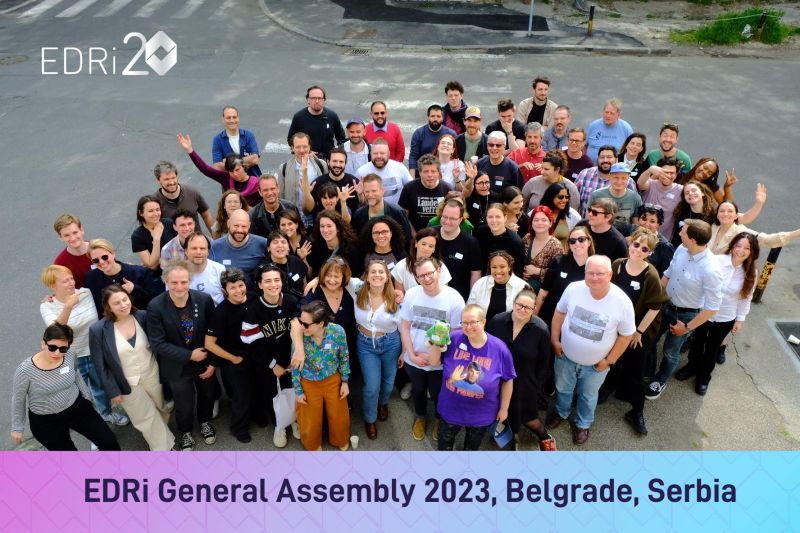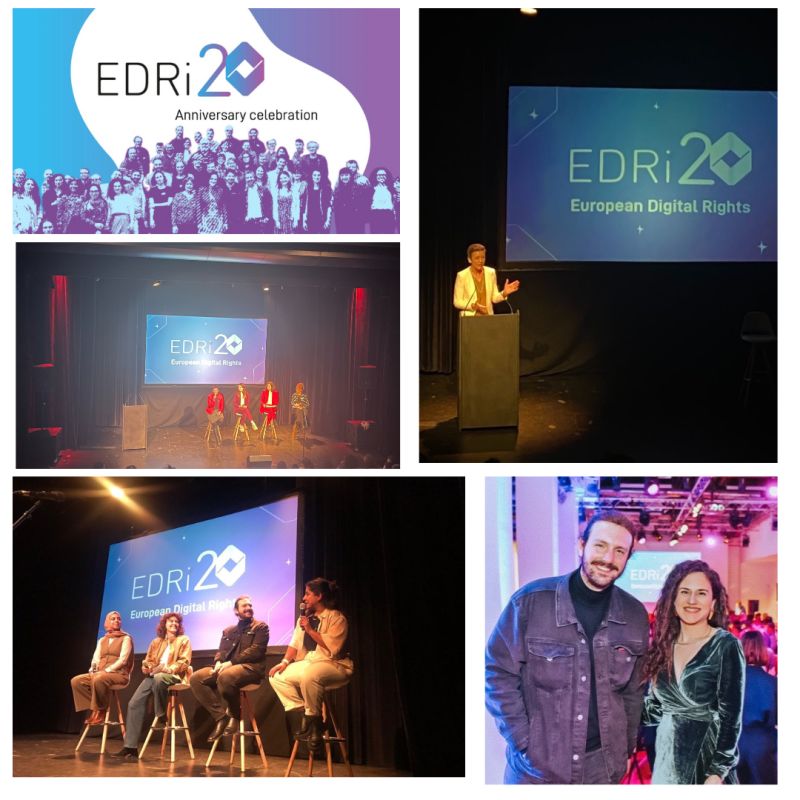Our participation in the Privacy Camp in Brussels for another year
Last week we attended the Privacy Camp in Brussels, one of the most important annual meetings in the field of digital rights internationally, organized by European Digital Rights in collaboration with the Research Group on Law, Science, Technology & Society (LSTS) at the Vrije Universiteit Brussel (VUB), Privacy Salon, Institute for European Studies, ULB (IEE-ULB), Institute for Information Law (IViR) at UvA and the Racism and Technology Center!
There we had the pleasure to meet with EDRi network organisations and other civil society representatives, European institutions, academic institutions and other partners!
Homo Digitalis was represented at the meeting by our President, Elpida Vamvaka, and there we met with many of our members who participated in the meeting, including Alexandra Giannopoulou and Emilia Givropoulou.
Homo Digitalis in Brussels for meetings with MEPs on CSAM
Last week Homo Digitalis travelled to Brussels!
There we participated in awareness raising activities with European Digital Rights regarding the proposed regulation on preventing and combating child sexual abuse (#CSAR) and met with Greek and Cypriot MEPs and their groups in the European Parliament to discuss it!
We would like to thank our members Angelina Barla, Charalambos Daftsios, Haris Kiritsis, George Sarris and Nikoleta Georgakopoulou for their excellent representation!!!
You can read more about our visit to Brussels here.
We published a joint study with EDRi on age verification online
Age verification is the process of predicting or confirming a person’s age online. Increasingly we hear from governments and technology companies that age verification is a tool we should use to ensure the safety of children online.
For example, in the EU, the draft regulation establishing rules to prevent and combat child sexual abuse (CSAR) proposes to enforce age verification forms for private messaging services (e.g. WhatsApp, Signal) and app stores operating in the EU, as well as to provide strong incentives to use this tool on all other digital platforms and services, such as social media.
The European Digital Rights network, including Homo Digitalis, has prepared a relevant study with a rich analysis of more than 30 pages, freely available here.
It is important to ensure that our children have access to age-appropriate online content. However, quick technological ‘fixes’ such as age verification online will not make a difference or really solve the complex problems we face. On the contrary, the adoption of age verification systems can have serious human rights implications, especially for the children they are intended to protect.
We demand an end to the use of mass biometric surveillance technologies by law enforcement authorities in public places
Today, 120 civil society organisations and 60 academics, scientists and other experts on new technologies are joining forces to stop the use of mass biometric surveillance technologies by law enforcement authorities in public places.
It is a great honour for Homo Digitalis to be part of this initiative. Already since 2020 with European Digital Rights we have been involved in the #ReclaimYourFace campaign, in which more than 250,000 people across the EU signed our petition to ban these practices.
You can read the joint statement here.
We express our concerns about Article 6 of the proposed AI legislation
As the European Union enters the final stage of trilateral negotiations on the proposed AI legislation, more than 150 civil society organisations, including Homo Digitalis, are concerned about a major loophole regarding the classification process for high-risk systems in Article 6!
Big tech companies have managed to convince the European Parliament and the Council to adopt proposed provisions that essentially leave them to decide for themselves whether the system they develop should be considered “high-risk” or not!
Read our joint statement to learn more about the challenges involved here.
We were present at the EDRi GA for 2023!
On May 12-14, Homo Digitalis was in Belgrade to attend the annual General Assembly of European Digital Rights (EDRi), which was co-organized by the Share Foundation!
There we had the pleasure to be present at the elections that elected the new EDRi Board members, welcomed the new organizations that joined the network and discussed many important new actions and strategies in the field of digital rights protection!
Thank you very much for the unique hospitality and excellent organization!
Homo Digitalis was represented by our Board Secretary, Eleftherios Chelioudakis.
Participation & Speech at the event celebrating 20 years of EDRi in Brussels
On 21-22 March Homo Digitalis was in Brussels to celebrate the birthday of European Digital Rights!
It was way back in 2003, when a handful of organisations and activists from 7 countries decided to found it! Twenty wonderful years later, full of dynamic interventions in the field of digital rights protection, EDRi has grown and its unique network of organisations now consists of 47 organisations in more than 22 countries!
At this great celebration, EDRi and its important contribution were spoken about by the Executive Vice President of the European Commission Margrethe Vestager, the President, Vice President and Director of EDRi, Anna Fielder, Thomas Lohninger and Claire Fernandez, respectively, Signal Technology Foundation President Meredith Whittaker, MEPs from different political parties, and many important contributors to EDRi’s activities, such as its former Director Joe McNamee and co-founder Sjoera Nas!
It is a huge honour for Homo Digitalis to be invited to talk about our actions and experiences! EDRi and its network were the main inspiration for the creation of Homo Digitalis in 2018, and we are honored to be its Greek member!
Homo Digitalis was represented by our President and Secretary of the Board Elpida Vamvaka and Eleftherios Chelioudakis, with the latter giving a speech about Homo Digitalis’ active participation in the EDRi network already in 2018.

